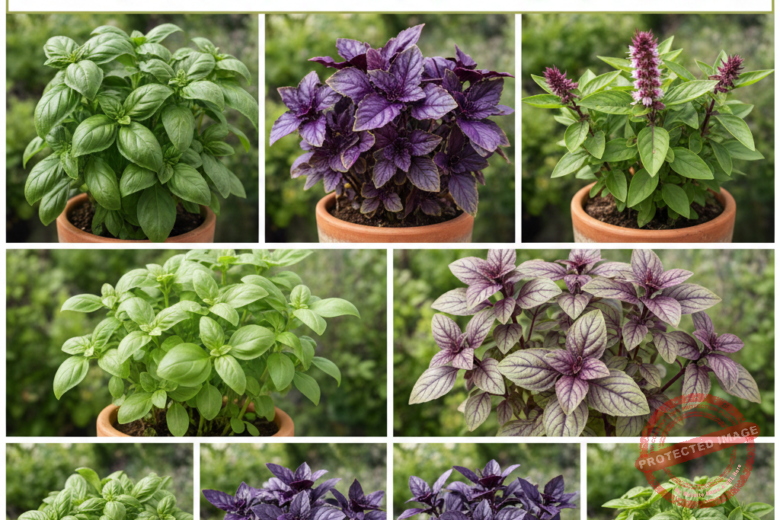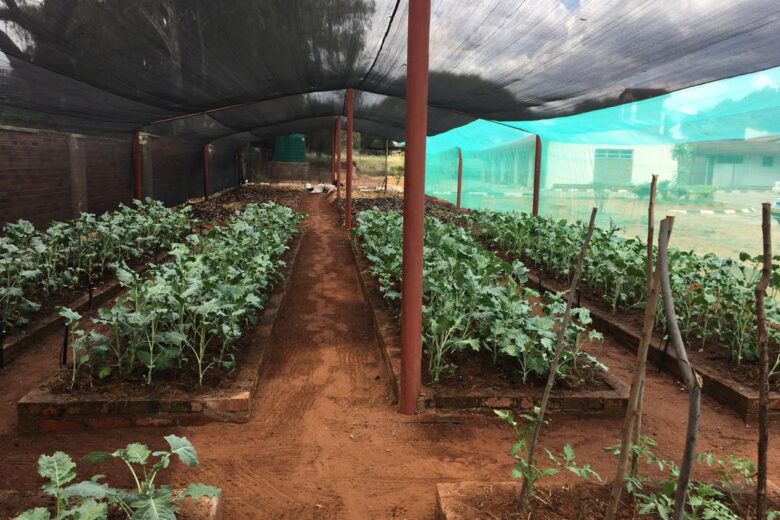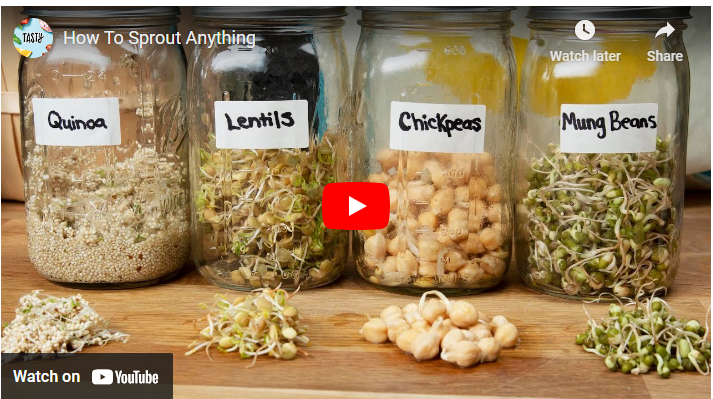Grapes are a popular fruit in Nigeria and can be used to make juice, jams, and wine. Growing grapes in Nigeria can be a rewarding experience and a great way to get involved in the local agricultural industry. It is important to understand the specific climate and soil requirements of growing grapes in Nigeria, as they vary from other parts of the world.
In this guide, we’ll discuss the basics of grape cultivation in Nigeria, including Choosing an ideal location, selecting grape varieties, Site Preparation, Seed Preparation, Planting, Watering, Pruning, Pest and Disease Control, Fertilizer Application, and Harvesting.
Additionally, we’ll cover the various types of grapes that can be grown in Nigeria and the steps necessary to successfully cultivate them. With the right knowledge and preparation, you can look forward to a successful and fruitful harvest of grapes in Nigeria.
How To Grow Grapes in Nigeria
Grapes are a popular crop in Nigeria. They are easy to grow and require minimal maintenance. To get started, follow the step-by-step guide discussed below.
Step 1: Choosing an Ideal Location
As you go on to select the location where you will plant your grapes, consider the following guideline.
- Choose a location with a mild climate and ample sunshine.
- Select an area with well-drained soil that is free of pests, weeds, and diseases.
- Ensure that the location has access to plenty of water, either through natural rainfall or irrigation.
- Research local zoning laws to make sure grape farming is allowed in the area.
- Consider the proximity to markets and transportation routes to reduce costs associated with selling the grapes.
Step 2: selecting grape varieties
When selecting grape varieties for grape farming in Nigeria, there are several factors to consider. The most important factor is the climate. So choose grape varieties that is compatible with the region’s climate.
Also, consider selecting grape seedlings that are pest resistant. This will help improve your yield during harvest. Likewise, consider selecting grape varieties based on the type of grape. Table grapes are popular for direct consumption, while wine grapes are usually used for winemaking.
Step 3: Site Preparation
Site preparation for grape planting is an important step in the successful establishment and production of a vineyard. Clear the site of any existing vegetation and remove debris including rocks to make the land fitting for grape cultivation.
Also, you will need to prepare the soil by tilling and plowing to make it suitable for planting. Then test your soil for pH, texture, and fertility and adjust as needed. Amending the soil with organic matter can also improve fertility and help with water retention.
Step 4: Seed Preparation
Grape seeds are usually collected in late winter or early spring when grapes are harvested. The grape seeds are soaked in water for 24-48 hours. This will help the seeds to break their dormancy and increase the chances of germination.
Then, rinse the seeds and remove any pulp or skins. After that, place the seeds in a container with a damp paper towel and cover it with a lid. Place the container in a warm, dark place for two weeks.
Step 5: Planting
Planting should be done in an area with good air circulation and adequate sunlight. Grape seedlings should be planted at least 18 inches apart, and the roots should be planted deeply, at least 10-12 inches deep.
Step 6: Watering
Establish an irrigation system that is suitable for the climate and soil type. Water the vines regularly, but do not overwater.
Step 7: Pruning
It is important to prune grape vines to encourage healthy growth and maximum fruit production. Proper pruning and training of the vines is key to producing a high-quality harvest.
Step 8: Pest and Disease Control
Grape plants can be susceptible to a variety of pests and diseases. To protect grape plants and maintain their health, it is important to practice proper pest and disease control.
You have to monitor the plants regularly and take action when necessary. Insecticides may be used to manage the pest population, but natural methods such as companion planting and the use of beneficial insects can also be effective in controlling these pests.
To control these diseases, it is important to practice proper sanitation and pruning techniques, and to use fungicides as needed.
Step 9: Fertilizer Application
When applying fertilizer to grape plants, it is important to use a fertilizer specifically formulated for grapes. The fertilizer should contain nitrogen, phosphorus, and potassium, as well as minor elements like iron, zinc, and manganese.
When applying the fertilizer, it is important to spread it evenly over the root zone of the plant. Once the fertilizer has been applied, make sure to water it in well so that the fertilizer can be absorbed into the soil even reaching the roots.
Step 10: Harvesting
Harvesting grape fruits involves the collection or picking of grapes from the vine. It is important to harvest grapes at the right time in order to ensure quality and flavor.
Ripe grapes should be plump and have a deep purple or black color. If the grapes are green or yellow, they are not yet ripe and should not be picked. When the grapes have reached the right stage of ripeness, the vine should be pruned to remove any leaves or branches that are blocking the fruit.
Next, the grapes should be carefully picked from the vine. The grapes should be handled gently to avoid bruising or damaging the skin. It is important to pick only ripe grapes and to avoid any overripe or underripe grapes.
Variety of Grapes in Nigeria
There are several grape varieties that can be grown in Nigeria. Some of the common varieties of grapes that are grown in Nigeria include:
- The Flame Seedless grape: This is a popular variety of grape that is grown in Nigeria. It is known for its sweet taste and seedless nature.
- The Crimson Seedless grape: This is another popular grape variety that is grown in Nigeria. It is also known for its sweet taste and seedless nature.
- The Thompson Seedless grape: This is a white grape variety that is grown in Nigeria. It is known for its sweet taste and is often used for making raisins.
Price of Grapes in Nigeria
The price of grapes in Nigeria can vary depending on the location and season. However, on average, a kilogram of grapes in Nigeria can cost between ₦1,500 to ₦2,500.
Best Agronomic Practices to Engage in Growing Grapes in Nigeria
To grow grapes in Nigeria, here are some of the best agronomic practices to engage in:
- Soil preparation: Grapes grow well in well-drained soil with a pH range of 5.5 to 7.0. Before planting, the soil should be tilled to a depth of at least 30 cm and mixed with organic matter such as compost or manure.
- Irrigation: Grapes require adequate moisture to grow well. In Nigeria, it is best to irrigate during the dry season, especially if the rainfall is insufficient.
- Training and Pruning: Grapes should be trained and pruned to ensure proper growth and yield. This involves removing unwanted shoots and leaves to allow for better air circulation and sunlight exposure.
- Fertilization: Grapes require adequate nutrients to grow well. It is recommended to apply nitrogen, phosphorus, and potassium fertilizers during the growing season.
Projected Profit of Grapes in Nigeria
The projected profit of grapes in Nigeria depends on various factors such as the scale of production, yield, and market demand.
However, it is possible to make a significant profit from grape farming in Nigeria.
With proper management and market access, you can expect to make a profit margin of between 30% to 50%.
Common Diseases and Pests of Grapes
Grapes in Nigeria are susceptible to several diseases and pests. Some of the common diseases and pests of grapes in Nigeria include:
- Powdery mildew: This is a fungal disease that affects the leaves, shoots, and fruit of grapes. It appears as a white powdery coating on the leaves and can reduce the yield and quality of grapes.
- Downy mildew: This is another fungal disease that affects the leaves and fruit of grapes. It appears as yellow or brown spots on the leaves and can also reduce yield and quality.
- Grapevine mealybug: This is a common pest of grapes in Nigeria. It feeds on the sap of grapevines and can cause stunted growth and reduce yield.
- Spider mites: These are small pests that can cause significant damage to grape leaves by sucking sap from them. Infested leaves can appear yellow or red, and yield may also be reduced.
Different Propagation Methods of Grapes
Grapes can be propagated through different methods, including:
- Cuttings: This involves taking a piece of the stem of an existing grape plant and planting it in the soil to grow a new plant.
- Layering: This involves burying part of a grapevine stem into the soil to allow it to develop roots before detaching it from the parent plant.
- Grafting: This involves attaching a piece of a grapevine stem onto the
Grape Farming In Nigeria Nairaland
Grape farming is an important agricultural activity in Nigeria, and it has been practiced for centuries. Grapes are a major component of the Nigerian diet, and many farmers grow grapes for both home consumption and for sale.
The major grape-growing states in Nigeria are Kaduna, Kano, Katsina, Plateau, Sokoto, and Zamfara. Grapes are grown in a variety of soil types and climates, but the best results are achieved in areas with a long growing season and sufficient moisture.
The most common variety of grape grown in Nigeria is the table grape, although some farmers also grow wine grapes.
The most important factor in successful grape farming is proper irrigation. Other factors to consider include pest and disease management, pruning and trellising, and harvest timing.
Can Seedless Grapes Grow In Nigeria
Yes, seedless grapes can grow in Nigeria. Nigeria has a warm climate that is ideal for growing grapes, and with the right cultivation techniques, seedless grapes can be grown in the country. Grapes need full sun and well-draining soil, as well as proper irrigation and fertilization.
Grapes In Jos
Grapes in Jos is a popular agricultural product in the city of Jos, Nigeria. The city has a long history of grape production, dating back to the 19th century. Grapes are grown in the city’s surrounding hills, and are available for purchase throughout the year.
Grapes in Jos are mainly consumed fresh, but can also be made into wine or juice. The grapes are generally sweet, ranging from light green to dark purple in color. These grapes are often used to make jams, jellies, and other preserves. Grapes in Jos are a popular agricultural product that is enjoyed by many.
Can Grapes Grow In West Africa
Grapes can grow in West Africa. The climate in many parts of West Africa is suitable for growing grapes, particularly in dry climates with long warm days and cool nights. The soil in these areas must be well drained, and the vines require plenty of sunlight and adequate water.
To ensure maximum yields, it is important to use the correct variety of grapes for the area and to take care to provide adequate water, pruning, and pest control.
Planting Grape Vines
Planting grape vines is a rewarding activity that can provide years of delicious fruit and beautiful foliage. The best time to plant grape vines is in the spring, when the soil is warm and moist.
Grape vines should be planted in a sunny location with well-drained soil. Planting holes should be twice as wide and deep as the root ball of the vine, and the vine should be planted at the same depth as it was in the pot.
After planting, water the vine well and mulch around the base. With proper care, the vine will begin to produce fruit within three years.
Nigerian Grapes
Nigerian Grapes are a type of grape that is native to Nigeria. They are a variety of Muscat grapes and have a unique sweet and tart flavor. Due to the grape’s popularity, they are widely cultivated and exported to other countries, specifically in Europe.
They are also used to make wine and juice. Nigerian Grapes are also noted for their high nutritional value, containing vitamins A, B-complex, C, E, and K, as well as minerals and antioxidants.
Nigerian Grapefruit
Nigerian Grapefruit, also known as Citrus aurantium, is a tropical citrus fruit native to the West African country of Nigeria. It is a member of the Rutaceae family and is closely related to oranges, lemons, and limes.
The fruit is a yellowish-orange color and has a sweet-tart flavor. The health benefits of Nigerian Grapefruit include increased immunity, improved digestion, and relief from various skin conditions.
Grape Orange
Grapefruit oranges are a hybrid citrus fruit that is a cross between a sweet orange and a grapefruit. These oranges are larger than normal oranges and have a yellowish-pink to deep red skin. The flesh is usually sweeter and less acidic than grapefruits but still has a tart flavor. Grapefruit oranges are high in vitamin C and are often used in juices and salads.
How To Grow Grapes In Nigeria
Grapes are a popular fruit in Nigeria and can be grown in many climatic conditions. To grow grapes in Nigeria, you will need well-drained soil that is rich in organic matter, full sun, and a trellis or other support structure.
Planting should be done in the early spring, and you should use either cuttings or dormant bare-root plants. Water the plants regularly and prune them yearly to keep them healthy and productive.
Diseases and pests can be a problem, so use integrated pest management to help control them. Finally, harvest the grapes when they are ripe and enjoy the fruits of your labor!
Can You Grow Grapes In Nigeria
Yes, grapes can be grown in Nigeria. Grapes are grown in the country for both commercial and domestic use.
Can You Grow Grapes In Ghana
Yes, it is possible to grow grapes in Ghana. Grapes are a popular fruit crop in Ghana, grown mainly in the southern and central parts of the country. The most popular variety of grapes in Ghana is the Muscat of Alexandria, which is a white seedless variety.
Does Grapes Grow in Nigeria
Grapes are grown in Nigeria, mostly for local consumption. The country has limited commercial production of grapes and the majority of grapes grown in Nigeria are used for making jams and juices.
The grapes are grown in the northern parts of the country, primarily in the states of Kano, Kaduna, and Katsina. The grapes are usually of the table grape variety and are of good quality. The climate in these states is suitable for grape production.
Conclusion
Grapes can be successfully grown in Nigeria with the right preparation and care. Preparing the soil properly and selecting the right variety of grapes are key to success. More so, adequate irrigation, pruning, and pest control as well as harvesting at the right time are essential for successful grape cultivation.



